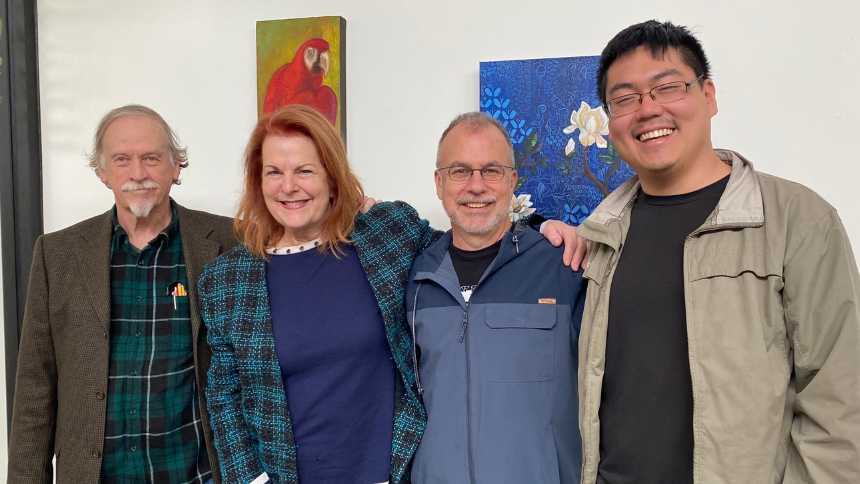
Chattanooga company using RevV funding for making dies for short runs
The collaboration between the University of Tennessee at Chattanooga and STRACT Corporation holds the promise of greatly reducing the time required for producing die plates for injection molding.
Die making is a vanishing art in the U.S., and that’s a particularly acute problem for companies that might need dies to make as few as 100 parts or as many as 10,000.
Fortunately, thanks to funding from the RevV voucher program administered by Oak Ridge National Laboratory, a collaboration between the University of Tennessee at Chattanooga (UTC) and STRACT Corporation holds the promise of greatly reducing the time required for producing die plates for injection molding.
“Using the technology, we believe we can deliver a die within two weeks of being ordered,” says Hiroshi “Chantz” Yanagida, Co-Founder and Chief Operating Officer at STRACT. The company was founded in January to provide affordable access to product manufacturing in the plastics space within the USA. This is done by providing product development consulting to help people from concept sketches to full-scale (1 million+) unit manufacturing.
The start-up identified a specific prototyping niche that it is seeking to exploit, specifically utilizing stereolithography (SLA) printing for mold negatives and then electroplating them with nickel. That will enable injection molding applications in the 100- to 10,000-unit space for 60 to 80 percent less cost and up to 25 weeks faster than traditional aluminum die plate tooling.
“This solution will help small businesses get innovations off the ground and into the market much faster,” says Marsha Roberts, STRACT’s Chief Executive Officer. Others on the team are Nick Desomov, Chief Technology Officer, and Rick Harrison, Chief Design Officer.
STRACT and UTC will partner to develop the novel method for producing die plates for injection molding. Specifically, the RevV grant will fund product development research that will enable the start-up to design, prototype, and validate proprietary methods of producing manufacturing-viable electroplated nickel forms.
“We’ll be testing across three plating media,” says Yanagida. They are 3D-printed resins, nickel electroplates, and shape memory alloy.
Upon successful, replicable production of nickel-plated forms, the STRACT and UTC team will work to further strengthen these forms by integrating titanium and zirconium to harness shape memory alloy properties within form production. After conducting this research, STRACT will either raise venture capital or actively seek a Phase I NSF SBIR for $250,000 to continue research.
Together with this research, STRACT will produce a 3D model to 3D form conversion software. Traditional model-to-die-plate conversion takes between 20 and 30 engineering hours, which often translates to $3,500 per die plate set. This software will make the process nearly instant using STRACT’s proprietary, artificial intelligence-driven approach incorporating Bayesian learning to automate the model cut extrusions and placement in the die plates.
The STRACT team says the technology will revolutionize plastics manufacturing in the Southeastern U.S., and it will subsequently create several hundred new jobs and inject billions into Tennessee manufacturing businesses within five years, with sustained growth thereafter.
The company will also file one or more system/method provisional patents, since STRACT inventors (the principals) are able to constructively reduce this approach to practice.
Like what you've read?
Forward to a friend!

